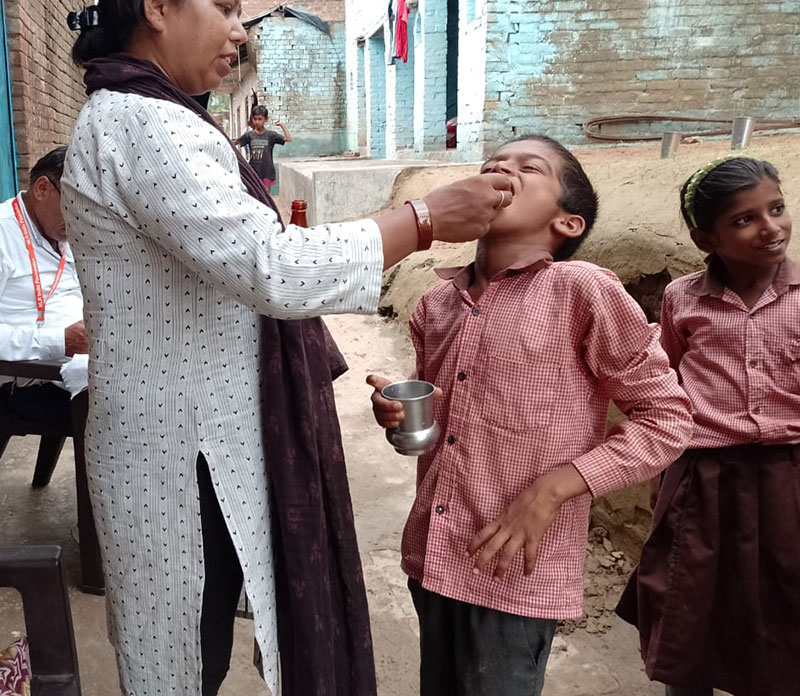

Innovative Research
Fighting Leprosy and NTDs
NLR India undertakes innovative research studies on leprosy, allied skin NTDs and disabilities in collaboration with academic institutes, partners and governments.
Some of the key research studies are:
- Enhanced post exposure prophylaxis (PEP) called PEP++ stop transmission of leprosy project, that is being implemented in Chandauli and Fatehpur districts of Uttar Pradesh. This is a global clinical trial being implemented across four countries to demonstrate evidence that the PEP++ regimen comprising of rifampicin and clarithromycin given in 3 doses, is expected to be 80-90% effective in preventing leprosy among contacts of leprosy patients.
- Testing of PEP App supported delivery system for leprosy post exposure prophylaxis (LPEP) being implemented in Howrah and Pashchim Burdmaan districts of West Bengal.
- Compassionate training for reducing stigma and improving quality of care services for persons affected by leprosy, being undertaken in Bokaro district of Jharkhand. This is a multi-collaborative study that involves international study partners/universities with funding from Leprosy Research.
- Study on addressing stigma and improving mental well-being for persons affected by leprosy and lymphatic filariasis (LF) in Jaunpur, Uttar Pradesh and Bokaro, Jharkhand.
- Leprosy perception studies undertaken in Chandauli and Fatehpur districts of Uttar Pradesh.
- Feasibility Study for Leprosy Post exposure prophylaxis (LPEP) using Single dose rifampicin (SDR) in Dadar Nagar Haveli (DNH), from 2015-2018, in collaboration with Govt. Of DNH, CLD, Ministry of Health & Family Welfare, Govt of India and Indian Council of Medical Research (ICMR). The study was funded by Novartis Foundation and was part of the Global Feasibility Study of LPEP using SDR that was carried out in seven countries including India, by NLR Netherlands, and ILEP agencies. The study findings formed the basis for roll out of LPEP-SDR in high priority districts in 2016 by the Govt. Of India, and hence became a national policy with national wide roll out in October 2018. NLR India supported the CLD in development of the national guidelines on LPEP.
